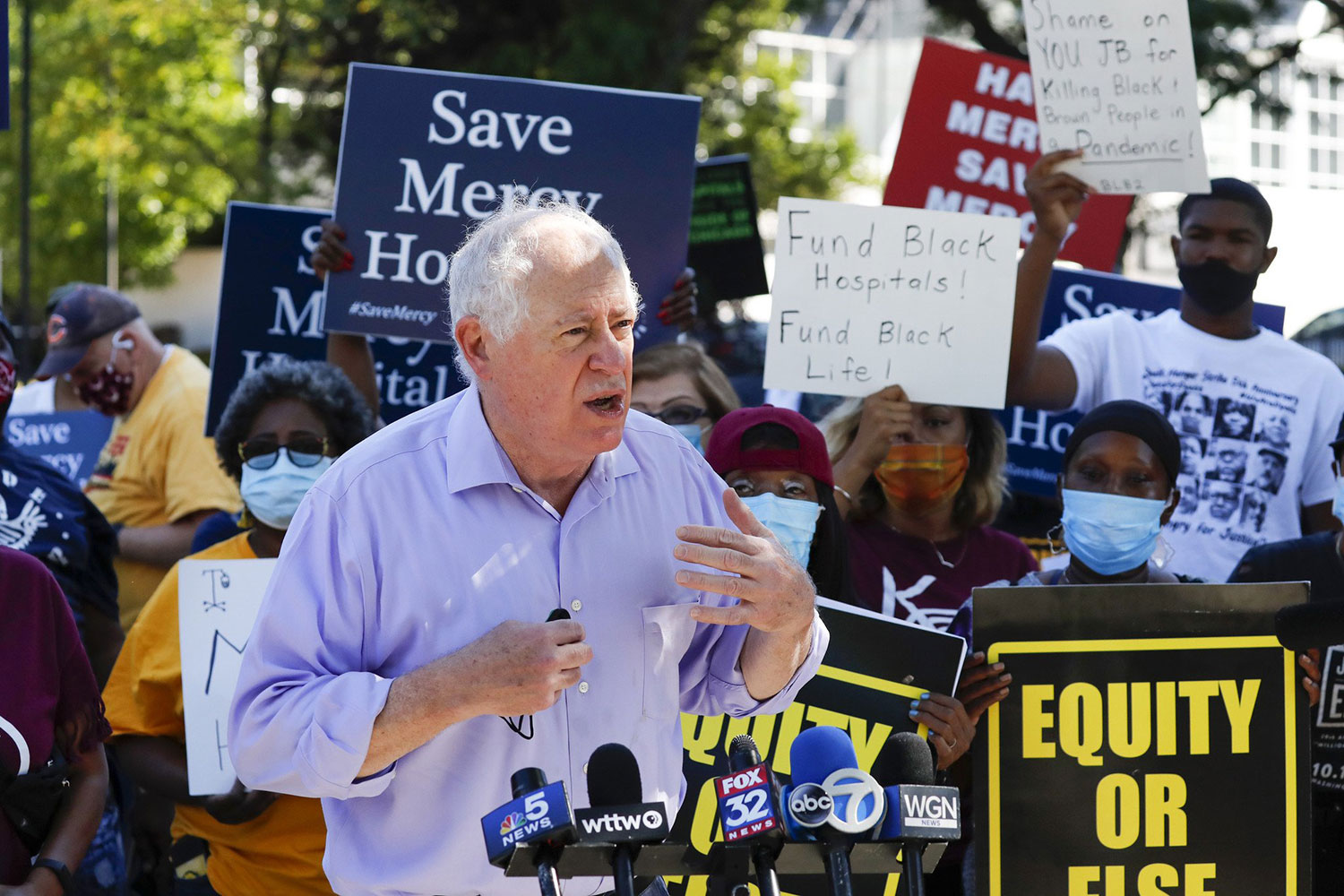In January of 2015, just as he was about to leave the governor’s office after losing to Bruce Rauner, I bumped into Pat Quinn at a wake for a North Side committeeman.
“You’ve had a great career,” I told him.
“It’s not over yet,” Quinn said, his voice full of determination.
And it isn’t. In 2018, Quinn ran for attorney general, finishing second in the Democratic primary to the eventual winner, Kwame Raoul. That same year, he tried to place a referendum on the ballot limiting the mayor of Chicago to two terms. Now, the 73-year-old ex-governor is talking about running for mayor himself. Last Saturday, Quinn appeared on Fox 32’s Flannery Fired Up. Ever the consumer advocate, he suggested that ComEd should pay every customer $1,000, as reparations for bribing the legislature to award it higher rates. Mayor Lori Lightfoot, he said, should not renew the utility’s franchise until it makes good.
“That’s what mayors should do,” Quinn said. “They have to get out there, roll up their sleeves and take on these price gougers.”
Only one person has ever served as mayor of Chicago and governor of Illinois: Edward Dunne. But Dunne was mayor first, then moved up to statewide office. Quinn would be going in the opposite direction. Not many would seek such a demotion, but for Quinn, running for office appears to be an uncontrollable compulsion. He can no more stop campaigning than Rahm Emanuel can stop using the f-word. Quinn has run for every statewide office except comptroller. He was elected treasurer (1990), lieutenant governor (2002, 2006), and governor (2010). He lost races for secretary of state (1994), U.S. Senate (1996), and lieutenant governor (1998). His name has appeared on a ballot at least every four years since 1990.
As an Illinois governor who didn’t go to prison, Quinn possessed a lot of professional capital. He could have retired to a lucrative law practice and collected expensive watches, like former Gov. Jim Thompson, who joined Winston & Strawn. But Quinn isn’t interested in money (a reason he didn’t go to prison). One of his sons once said, “My father can live on a penny.” (Quinn is so frugal that after he succeeded Rod Blagojevich as governor, he crossed “lieutenant” off his business cards.) He could have become an elder statesman, like Jim Edgar, who runs a program for young leaders at the University of Illinois. Edgar once commented that Quinn is most comfortable outside the system, rattling cages. That’s something he can do when he’s running for office.
In a 2014 article for this magazine, “Does Pat Quinn Have a Personal Life?,” author Carol Felsenthal speculated that Quinn has no interests outside politics. Quinn was married once, from 1982 to 1986. A Chicago magazine profile quoted his wife as saying, “He seems to be so preoccupied with things. He’s so busy with his work. Sometimes I’ll be talking to him, but he doesn’t hear a word I’m saying.”
Quinn has always been a crusader. His first political success was the 1980 Cutback Amendment, which reduced the size of the Illinois House of Representatives from 177 to 118. He’s still crusading, although now he looks more like a washed-up politician, desperate for attention, than an angry outsider. A few weeks ago, he showed up at City Hall to hand-deliver a letter to Lightfoot, demanding the release of a report on a 2020 smokestack implosion in Little Village. Quinn didn’t have an appointment, though, so he was told to wait in the lobby, where a mayoral functionary collected his letter.
In his Flannery Fired Up appearance, Quinn sounded like a candidate for mayor. Like every declared candidate, he blamed Lightfoot for the city’s rising crime. If Pat Quinn were mayor, there would be “an adequate number of officers in every neighborhood.”
“Police officers don’t have any confidence in her, and I don’t think people in the community have any confidence in her leadership when it comes to public safety,” Quinn said. “We’ve had too many situations where public safety has broken down.”
So will he run?
“The best way to help Chicago is robust competition in the race for mayor,” Quinn said, adding, “we’ll have enough time to get an adequate number of signatures.”
Will he win? No. For Quinn, though, that’s not the point. His life is a permanent campaign that occasionally lands him in public office. He lucked into the governorship — an office he would never have attained on his own — when Blagojevich was impeached. Then he lucked into Bill Brady as a re-election opponent. For Quinn, the best thing about being an ex-governor is that it provides him a public profile that allows him to publicize his causes. After the mayor refused to accept his letter in person, he held a press conference at City Hall, talking to reporters from WLS, WBBM and the Sun-Times.
So the question isn’t, “Will Pat Quinn run for mayor in 2023?” Nor is it, “Will Pat Quinn be our next mayor?” The question is, “What will Pat Quinn run for in 2024?”



